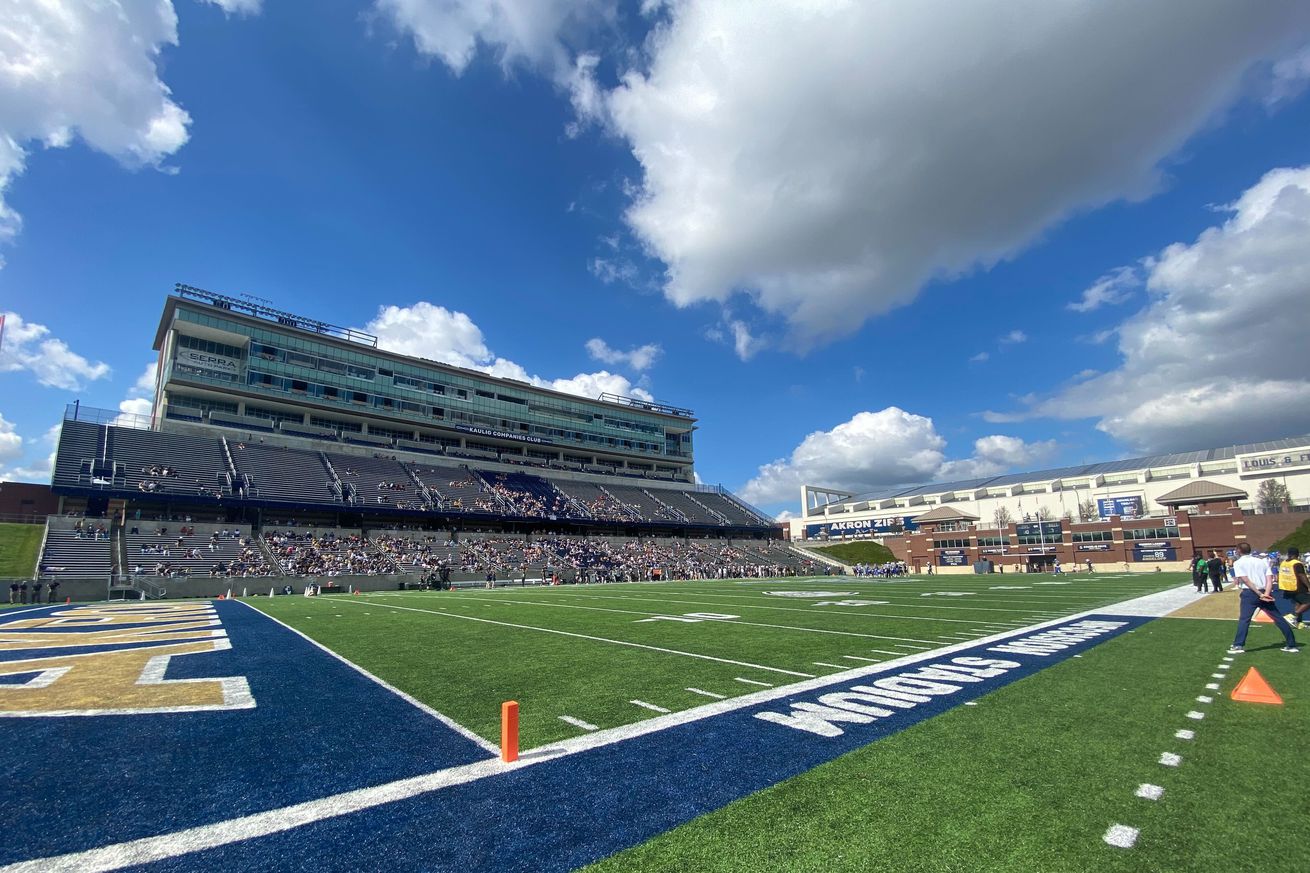
If the ban stands, Akron would become the first FBS-level program since 2014 to be declared ineligible for the postseason for academic reasons.
Whether they finish 12-0 or 0-12, the Akron Zips’ 2025 season will conclude Nov. 18 at Bowling Green — barring an appeal to the NCAA.
The NCAA website declared Akron as ineligible for the 2025 football postseason on Tuesday afternoon due to its Academic Progress Rate (APR), which falls below the acceptable threshold. APR is essentially a metric which measures the academic eligibility and graduation rates of a varsity sport’s scholarship athletes, with a perfect score sitting at 1,000.
Per the NCAA website, teams must earn a four-year average APR of 930 to compete in championships. For football, falling below the threshold bars a program from conference championship games and bowl games. The minimum threshold of 930 equates to a 50 percent graduation rate.
When reached by Hustle Belt over the phone on Tuesday afternoon, the University of Akron’s athletic department had no comment regarding the report.
Akron’s rolling four-year APR reported through the 2023-24 academic calendar was 914, falling 16 points shy of the mandated score. The screenshot below from the NCAA website shows Akron’s four-year APRs, including penalties and postseason restrictions:

Screenshot via https://web3.ncaa.org/aprsearch/aprsearch
As evidenced by the table, Akron’s four-year APR also fellow below 930 during the 2022-23 academic calendar, meaning the Zips received a Level One Penalty of practice reduction last season.
The screenshot below — also from the NCAA — shows Akron’s APR in 2023-24’s academic calendar compared to their peers in the Mid-American Conference:

This isn’t the first time an FBS team has dealt with similar restrictions.
In 2014, Idaho (which dropped to the FCS level in 2018) and UNLV both faced similar sanctions. Both teams’ final appeal to the NCAA was denied. However, Idaho finished 1-10 while UNLV fared 2-11, so their respective postseason bans were overshadowed by the unfavorable results on the gridiron.
Several teams have properly appealed these restrictions in recent years. LSU had a rolling four-year APR of 923 and New Mexico State had a rolling four-year APR of 916 through the 2021-22 academic year. However, neither program received restrictions on practice time or postseason ineligibility as the NCAA paused penalties in the aftermath of the COVID-19 pandemic.
Akron is the first FBS team since the pandemic to be assessed restrictions from the NCAA and would also be the first team to suffer a postseason ban under the NCAA’s new transfer rules; the spring transfer window closed on April 25th, and under current bylaws, any transfer student who leaves their institution after the conventional winter/spring windows must sit out one season of play if they are an underclassman.
The university is currently under an administrative transfer after former athletic director Charles Guthrie left in November 2024 to take the same position at Fordham University in New York. Dr. Andrew T. Goodrich, formerly of Gardner-Webb University in North Carolina, was tabbed as Akron’s new athletic director in late April, with the expectation to start later this month.
Akron has not competed in the football postseason since 2017.
This is considered a developing story and will be updated appropriately.